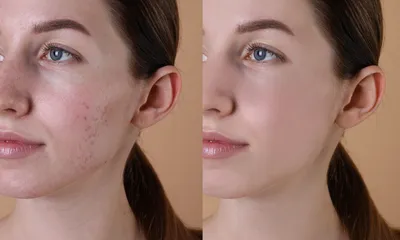Asthma
-
Description
-
Signs & Symptoms
-
Anatomy
-
Cause
-
Diagnosis
What is Asthma?
Asthma is a chronic lung disease where inflammation causes a constriction and narrowing of the airways into the lungs and makes breathing difficult when a person has an asthma attack. Asthma is also sometimes referred to as chronic respiratory disease, and for people with severe asthma, the inability to breathe may be a health risk to the extent that hospitalization is required.
Some sufferers may need to refrain from participating in activities that require strenuous exertion, but for most people, asthma is a manageable condition, and they can have a reasonably normal life despite it.
What Causes Asthma?
The inflammation that is the root cause of asthma will occur based on a trigger, and there are many different ones that can lead to an asthma attack. With allergic asthma, any exposure to an allergen like pollen, mold, pet dander, dust mites, or many others that will be specific to the individual’s allergy can trigger it. Infections like sinusitis, colds, and the flu can also be what causes asthma, and air pollution and extreme weather changes can also promote an asthma attack.
Other asthma triggers include:
- Airway irritation from substances, scents, or chemical products
- Exercise (exercise-induced asthma)
- Tobacco smoke
- GERD (gastroesophageal reflux disease)
- Strong emotional responses
- Medication use
- Food preservatives (sulfites) found in certain processed foods
Asthma Symptoms
People with this lung disease may experience any number of asthma symptoms, including shortened, rapid breathing, wheezing, coughing, chest pain or pressure, tightened neck and chest muscles (retractions), talking difficulties, anxiety or panic feelings, or a pale or sweaty face. People who are having a severe asthma attack may have blue lips or fingernails.
There are daytime and nighttime asthma symptoms, and people with mild or moderate asthma will have fewer of either of them as compared to people with severe asthma.
Asthma Treatment
The most conventional approach to asthma treatment is to use bronchodilator medications like the Advair inhaler or Symbicort inhaler, both of which are asthma maintenance inhalers that asthma sufferers will use on an ongoing basis to reduce the severity and frequency of asthma attacks. Some may also need to use an asthma rescue inhaler like the Ventolin inhaler that is used for immediate relief when an asthma attack is underway.
Lifestyle changes and self-therapeutic approaches can also be a part of what is recommended for asthma treatment. They can include exercising more regularly, being at a healthier body weight, and practicing breathing exercises that may make it easier to get through an asthma attack. Vitamin C supplementation is reported to be helpful for some people, as is acupuncture for asthma.
Signs & Symptoms
- Shortness of breath
- Chest tightness or pain
- Wheezing
- Coughing
- Difficulty sleeping due to coughing or wheezing
- Episodes of asthma attacks
Anatomy
- Bronchi
- Bronchioles
- Lungs
- Airways
- Alveoli
Cause
- Genetic factors
- Environmental factors
- Allergies
- Air pollutants
- Respiratory infections
- Physical activity
- Cold air
- Stress
- Smoking
Diagnosis
- Physical examination
- Lung function tests (spirometry)
- Peak flow measurement
- Methacholine challenge
- Imaging tests (X-ray, CT scan)
- Allergy testing
- Blood tests
- Nitric oxide test



